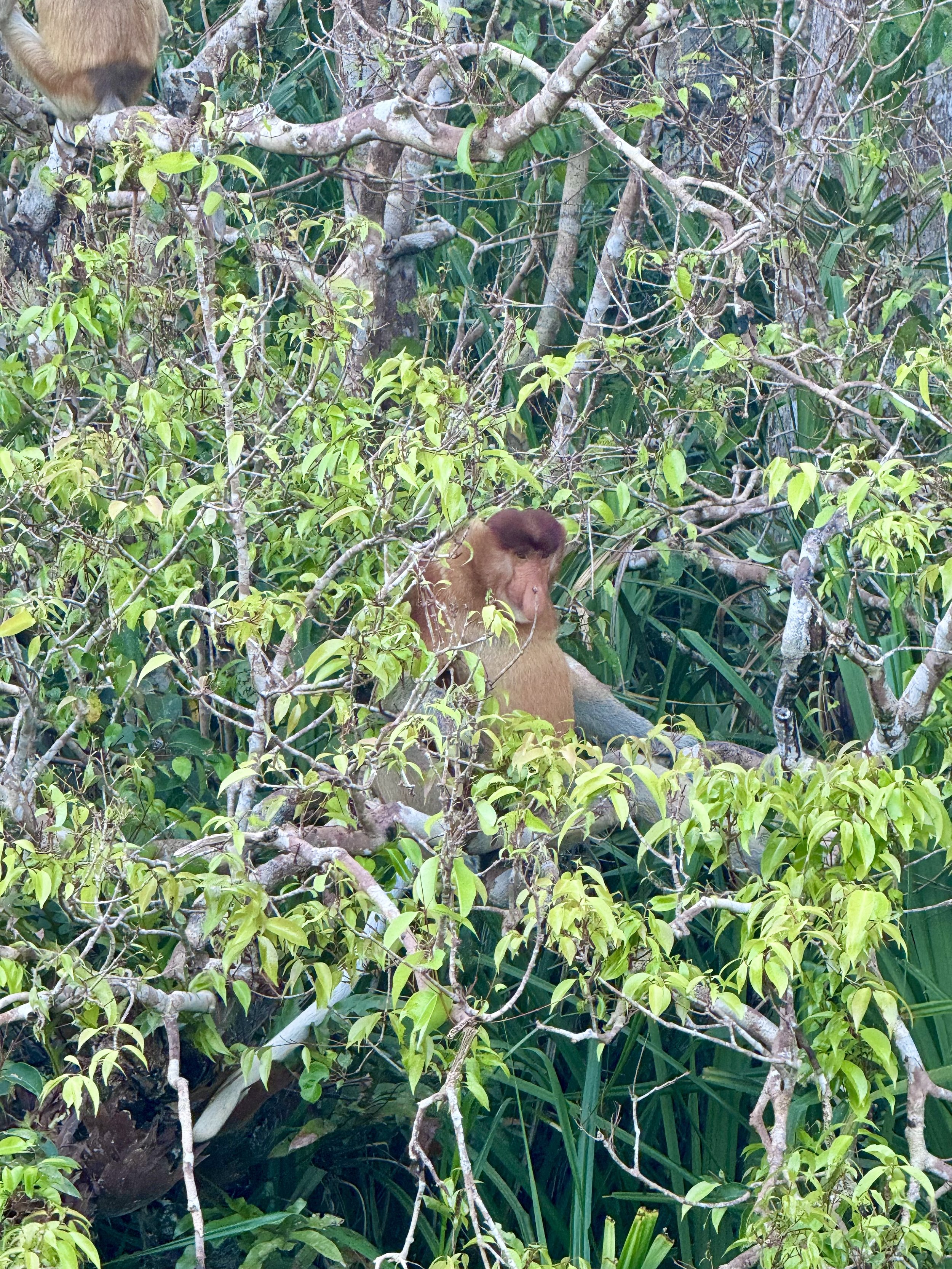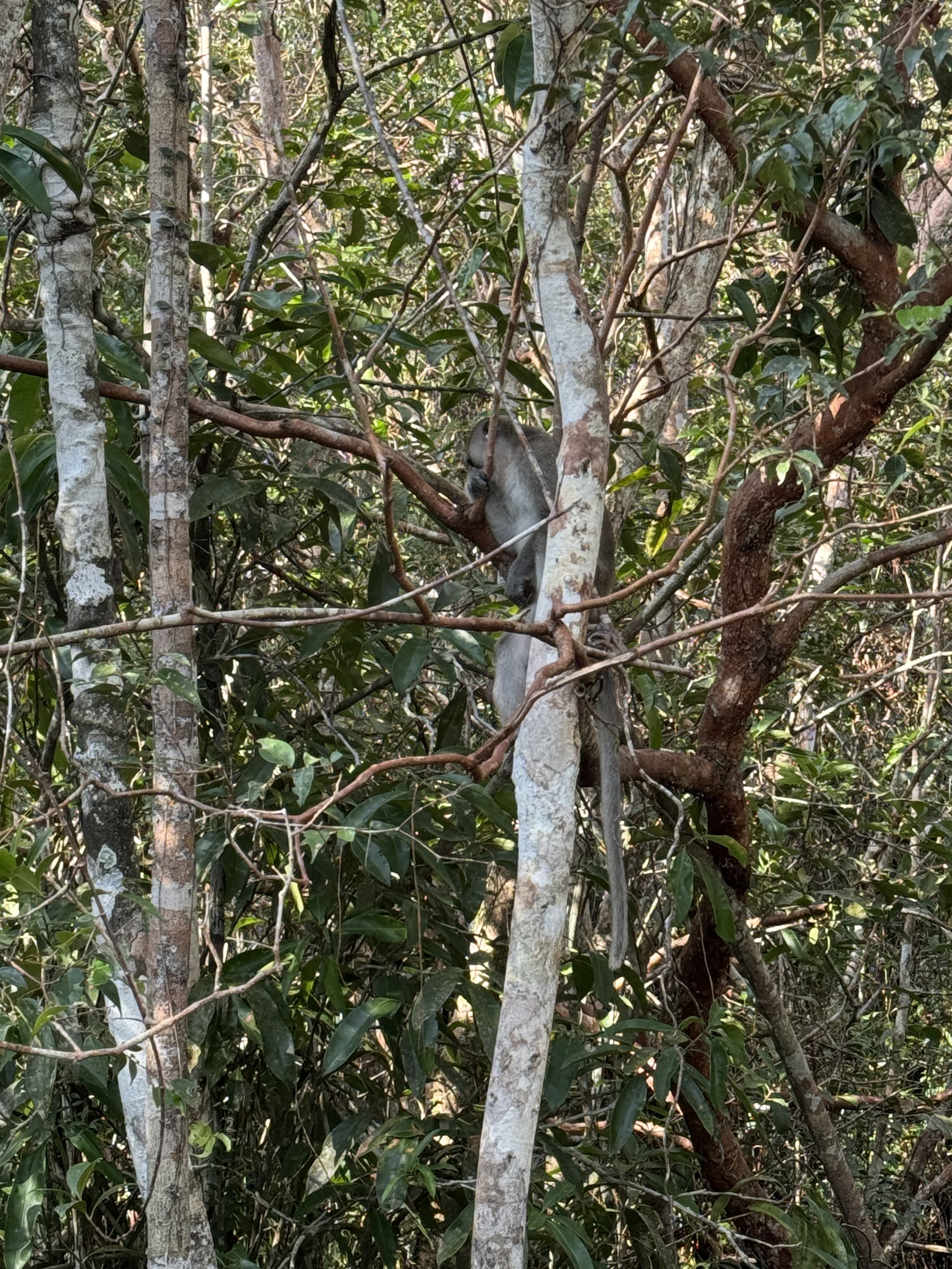INDONESIA - DAY FOUR
RIMBA ORANGUTAN ECO LODGE ALONG SEKONYER RIVER AND SUNGAI KECIL RIVER TO CAMP LEAKEY
MAY 19, 2024
This morning we ate breakfast at the ecolodge at ~6:30am because we were meeting our guide and boat crew back on the houseboat at 7:00am to make our way to our second orangutan feeding platform in Tanjung Harapan. The orangutans we saw here are in captivity and “protected.” Like so many species in our world, orangutans have been hunted to serve us humans. We take and take and take. Humans have taken baby orangutans from their mothers because they want a pet or because they can sell the babies to make money.
The staff at places like Camp Leakey come to the plaforms twice a day with bananas, sweet potatoes and sometimes milk for the orangutans. In certain seasons they don’t need to come to the feeding platform as often because there is bountiful food in the forest.
Momma and baby at the feeding platform
In Malay and Indonesian orang means "person" and utan is derived from hutan, which means "forest." Thus, orangutan literally means "person of the forest."
More FACTS about the wonderful ORANGUTAN
Orangutans are great apes, as opposed to monkeys, and are closely related to humans, having 97% of DNA in common.
Orangutans are extremely patient and intelligent mammals. They are very observant and inquisitive, and there are many stories of orangutans escaping from zoos after having watched their keepers unlock and lock doors.
Height: males - about 1.5m; females - about 1.2m
Weight: males - 93 to 130 kg; females – 48 to 55 kg
Life Span: 60 years or more
Gestation: about 8.5 months
Number of Young at Birth: usually 1, very rarely 2
Extinction in the wild is likely in the next 10 years for Sumatran orangutans and soon after for Bornean orangutans. Both the Sumatran species (Pongo abelii) and the Bornean species (Pongo pygmaeus) are classified as Critically Endangered according to the International Union for the Conservation of Nature and Natural Resources (IUCN) Red List of Threatened Species.
The Sumatran and Bornean Orangutans' rainforest habitats are disappearing at an alarming rate due to deforestation and clearing of the land for pulp paper and palm oil plantations, with the remaining forest degraded by drought and forest fires.
From: https://www.theorangutanproject.org/about-orangutans/orangutan-facts/
Today we were lucky enough to see the proboscis monkey “The Dutch Monkey,” along the riverbank. These monkeys are endemic and can only be seen in Borneo.
This gibbon came around for some snacks as well and delighted the tourists with his entrance.













